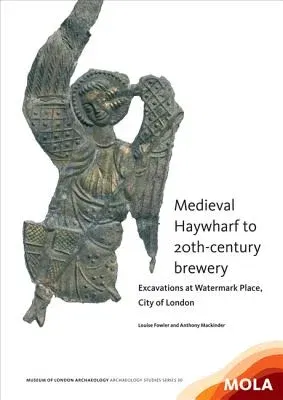Archaeological excavation by MOLA at Watermark Place in the City of
London revealed evidence for the development of the city waterfront from
the 13th century onwards. The remains of substantial and well-preserved
timber river walls and timber/stone dock walls were recorded, and the
use of tree-ring dating enabled the construction of one large timber
river wall and dock to be dated to the year 1339. Many of the recorded
structures related to the medieval wharf known as the Haywharf, probably
originally so-named because it was where hay was imported into the city
before c 1300. In common with other excavations of medieval waterfronts
in the City, the waterlogged deposits associated with the structural
remains produced a remarkable array of finds, including over 700
accessioned finds. Large medieval foundations on the site probably
relate to the mansion known as Coldharbour, which was constructed on the
site by the early 14th century. Later remains included a sequence of
15th- to 16th-century industrial stone hearths or furnaces, and
documentary evidence suggests that it is likely these were associated
with either brewing or dyeing on the site. Also recorded were structures
associated with the Calvert's/City of London brewery, which stood on the
site from the 18th century until it was bombed during World War II.

